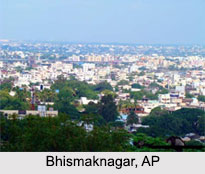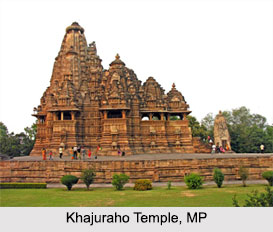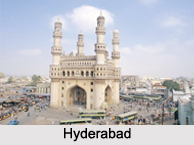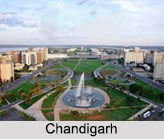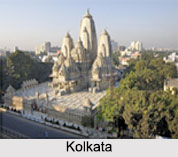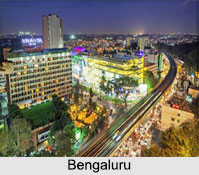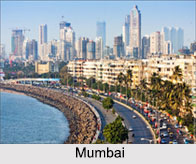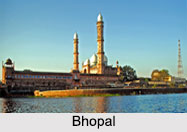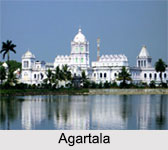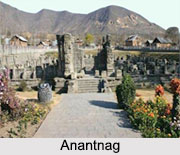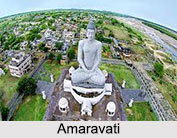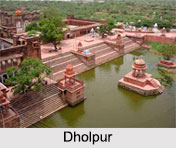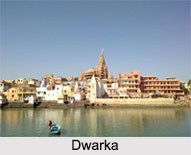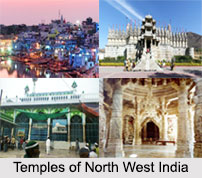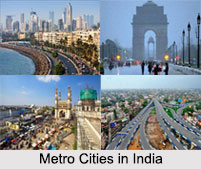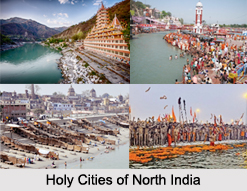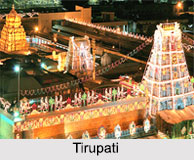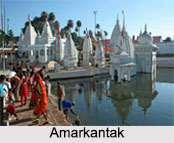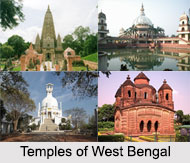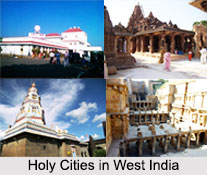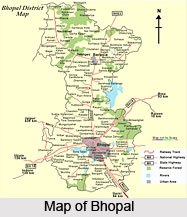 Bhopal is a place of scenic beauty, rich history and modern urban planning combines together to bring out the charm. It is the second largest city and the capital of the Indian state of Madhya Pradesh. Bhopal is known as the City of Lakes as its landscape is dotted with a number of lakes.
Bhopal is a place of scenic beauty, rich history and modern urban planning combines together to bring out the charm. It is the second largest city and the capital of the Indian state of Madhya Pradesh. Bhopal is known as the City of Lakes as its landscape is dotted with a number of lakes.
Location of Bhopal
Bhopal is located in central India on the Malwa plateau. Bhopal city is divided into two cities as old city and new city. It is the site of India`s largest mosque and home to several colleges. It has an average elevation of 499 meters and is higher than the north Indian plains and the land rises towards the Vindhya Range to the south. The city has uneven elevation and has small hills within its boundaries.
History of Bhopal
Bhopal was founded by Parmara King Bhoj, who had his capital at Dhar. The city was earlier known as Bhojpal, named after Bhoj and the dam (pal) that he constructed to form the lakes that surrounds Bhopal. After the decline of Parmaras, the city fell prey to many plunders and pillage. It is said that an Afgan soldier named Dost Mohammad laid out the present city at the same site following the death of the Mughal Emperor Aurangzeb in 1707. It was the largest Muslim empire. The founder of the existing city was Afghan soldier Dost Mohammad (1708-1740). Fleeing from Delhi in the chaotic period that followed Aurangzeb`s death, Dost Mohammad met the Gond queen Kamlapati, who sought his aid after the murder of her consort. A charming legend relates how the queen would recline in a lotus barge that on moonlit nights would drift across the lake. Bhopal is the second largest Muslim state in pre-independent India. From 1819 to 1926, Bhopal was ruled by four Begums.
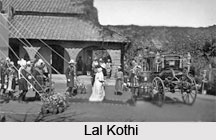 The first female ruler of Bhopal was Qudisa Begum. She was succeeded by her only daughter Sikandar, who in turn was succeeded by her only daughter, Shahjehan. The last female ruler of Bhopal`s history was Kaikhusrau Jahan Begum after which the kingdom passed on to her son. The era of the rein of the Begums can be considered as a Golden Age in the history of Bhopal as the city saw innovations such as waterworks, railways and a postal system. Several monuments still stand in the city as reminders of this glorious period in its history. In 1947, a municipality was constituted in Bhopal. It was the last princely state to sign the `Instrument of Accession` in 1947. Even though India achieved Independence in August 1947, the ruler of Bhopal acceded to the Indian government only on 1st May 1949. As per the States Reorganization Act of 1956, Bhopal state was integrated into the state of Madhya Pradesh, and Bhopal was declared as its capital. Bhopal witnessed the worst of the tragedies on December 3, 1984, when a Union Carbide plant in Bhopal leaked 40 tons of toxic methyl isocyanate gas, leading to the Bhopal disaster. Bhopal disaster is often alluded to as the world`s worst industrial disaster.
The first female ruler of Bhopal was Qudisa Begum. She was succeeded by her only daughter Sikandar, who in turn was succeeded by her only daughter, Shahjehan. The last female ruler of Bhopal`s history was Kaikhusrau Jahan Begum after which the kingdom passed on to her son. The era of the rein of the Begums can be considered as a Golden Age in the history of Bhopal as the city saw innovations such as waterworks, railways and a postal system. Several monuments still stand in the city as reminders of this glorious period in its history. In 1947, a municipality was constituted in Bhopal. It was the last princely state to sign the `Instrument of Accession` in 1947. Even though India achieved Independence in August 1947, the ruler of Bhopal acceded to the Indian government only on 1st May 1949. As per the States Reorganization Act of 1956, Bhopal state was integrated into the state of Madhya Pradesh, and Bhopal was declared as its capital. Bhopal witnessed the worst of the tragedies on December 3, 1984, when a Union Carbide plant in Bhopal leaked 40 tons of toxic methyl isocyanate gas, leading to the Bhopal disaster. Bhopal disaster is often alluded to as the world`s worst industrial disaster.
Climate of Bhopal
Bhopal faces hot summers and cold damp winters. Winters are quite cold with temperature to about 8 degree Celsius with heavy fog. The weather usually remains very damp and misty. The summers are hot and dry. There is moderate rain during the rainy season. There are isolated rains all throughout the year.
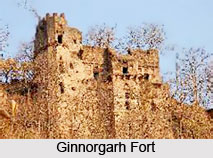 Economy of Bhopal
Economy of Bhopal
The economy of Bhopal is mainly based on industries. The major industries in the old city of Bhopal are based on electrical goods, cotton, chemicals and jewellery. Other industries include cotton and flour milling, cloth weaving and painting, as well as matches, sealing wax, and sporting equipments. Handicraft is a major product of the old city. There is a rising demand for its very famous zardozi work, embroidery done on bridal dresses, sherwanis, and purses. Another famous handicraft of Bhopal is `Batua`, a small string purse. There are a large number of garages in the older city that specializes in automobile conversion. These garages produce custom-modified and tuned cars, SUVs and motorbikes. There are a number of hardware as well as software vendors in the city. Bharat Heavy Electricals Limited, the largest engineering and manufacturing enterprise in India, has a unit in Bhopal. Mandideep, an industrial suburb of Bhopal houses a number of plants belonging to reputed companies of India like Procter & Gamble, Fujitsu, Eicher, L&T, HEG etc. Manjul Publishing House in the old city is a major publishing house made famous by the translation of the Harry Potter series of novels into Hindi.
Administration of Bhopal
Bhopal houses the State Legislative Assembly, or the Vidhan Sabha, which seats 230 members of Legislative Assembly. The administration of Bhopal city is handled by Bhopal Municipal Corporation, also known as BMC. The city of Bhopal is divided into 66 wards. Each ward elects a corporator. The winning party elects a council of members, who hold various responsible departments. They in turn choose the Mayor. The Commissioner of Bhopal is the highest officer of Municipal Corporate Office, which is responsible for the departments of public works, revenue and tax, water supply, planning and development, fire brigade, health and sanitation, finance & accounts etc.
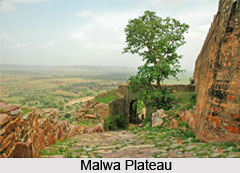
Demographics of Bhopal
As per the 2001 census, the population of Bhopal had been 14, 82,718, of which 7, 81,282 are men and 7, 01,436 women. The sex ratio of Bhopal is 898 women for every 1000 men. Hindus form majority of the population in Bhopal. There are 56% Hindus, 38% Muslims and rest of the population constitutes Christians, Sikhs, Jains, and, Buddhists. The Old City of Bhopal is a predominantly Muslim area while the New Bhopal is a demographically cosmopolitan area. The chief languages are Hindi, Urdu, English and Marathi. In the princely state of Bhopal, Persian was the court language until nineteenth century. The common street Hindi spoken in Bhopal is termed as Bhopali.
Culture of Bhopal
Bhopal is a city where its citizens give importance to exquisite culture and manners. The city is famous for its culture of parda(veil for women), zarda(tobacco plant), garda aud namarda(eunuch). Eunuchs form an integral part of Bhopali culture and any celebration without them is considered incomplete. They roam around the city collecting donation for festivals as Diwali, Holi, Eid etc. During occasions like marriage or childbirth, they visit the families and demand huge sums for donations. They also have started to contest in elections at local and state levels. The people of Bhopal are used to eating paan. The paans in Bhopal are wide in variety and innovations. Diwali, Eid, Ganesha Puja, Durga Puja, Vijayadashmi or Dussehra are the festivals of Bhopal. As per the Bhopali culture, both Hindus and Muslims visit each other on their respective festivals to greet and exchange sweets.
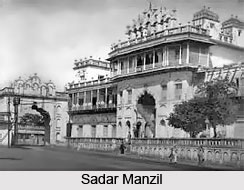 Sports of Bhopal
Sports of Bhopal
The people of Bhopal are mainly interested in sports as cricket and hockey. The Tatya Tope Stadium, located in the heart of the city, was a cricket stadium and held matches at local and state level. It is now a multi purpose stadium with facilities for athletics, football, tennis, squash, table tennis, volleyball, basketball and a gymnasium.
The city has produced many national and international players for Indian hockey team. The famous hockey player is Aslam Sher Khan. He also served the national hockey by being a part of the national selection committee. His father, Ahmed Sher Khan, represented India at the Berlin Olympics in 1936 along with Major Dhyan Chand. Another popular sport of Bhopalis is body building.
At school and college level, table-tennis, volleyball, basketball, football and swimming are also popular sports. Bhopal is also a center for adventure sports as trekking, kayaking, canoeing, rafting, water skiing, para-sailing, parasailing, paragliding, hot air ballooning etc.
Education of Bhopal
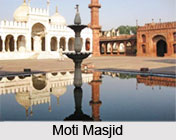 Bhopal has a number of educational institutions that provide education at nominal fees and they are affiliated to the Madhya Pradesh Board. There are a number of Convent schools which are run by the missionaries and 4 Central schools in the city which are affiliated to the Central Board of Secondary Education. There are 23 engineering colleges in and around Bhopal.
Bhopal has a number of educational institutions that provide education at nominal fees and they are affiliated to the Madhya Pradesh Board. There are a number of Convent schools which are run by the missionaries and 4 Central schools in the city which are affiliated to the Central Board of Secondary Education. There are 23 engineering colleges in and around Bhopal.
Two University Institutes of Technology are affiliated to Rajiv Gandhi Technical University and Barkatullah University. University such as Madhya Pradesh Bhoj Open University provide long distance courses to students in all types of fields.
Tourism in Bhopal
The important places of interest in Bhopal are Rock Shelters of Bhimbetka, Bharat Bhavan Indira Gandhi Rashtriya Manav Sangrahalaya (National Museum of Humans), Bhojpur, famous for a Shiva temple and Jain shrines, Sanchi, notable for ancient Buddhist Stupas built by Ashoka, Rock Shelters of Bhimbetka, a World Heritage Site of archaeological interest, Taj-ul-Masajid, one of the largest mosques in Asia, Dhai Seedi ki Masjid ,one of the smallest mosques in Asia, Jama Masjid,
 Moti Masjid, Gohar Mahal, Sadar Manzil, Purana Kila, Lakshmi Narayan Temple and Udaygiri Caves.
Moti Masjid, Gohar Mahal, Sadar Manzil, Purana Kila, Lakshmi Narayan Temple and Udaygiri Caves.
Visiting Information
The city buses or mini buses are the most common means of transport in Bhopal. Autorickshaws are another major means of transport. In some routes in the older city, bigger diesel-rickshaws are also common. The personal transport of the locals is mainly two-wheelers. Bhopal is a major railway station and a small junction. It is well connected by rail to all parts of the country being on the main North-South line of the country. Bhopal has an International airport that connects it to Delhi, Mumbai, Indore, Gwalior and Jabalpur and many major cities of India.
